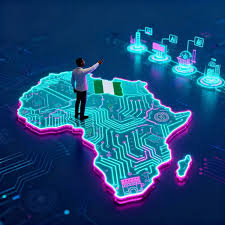
The World Trade Organization’s 2025 World Trade Report and its companion study Trading with Intelligence emphasize that artificial intelligence (AI) is rapidly becoming a defining force in global commerce. While AI could boost world trade by up to 14 percentage points by 2040 under universal adoption and productivity growth, the report warns that uneven uptake may cut potential gains in half. For countries like Nigeria and other developing economies, the stakes are particularly high. The WTO cautions that without significant investment in digital infrastructure, skills development, and regulatory frameworks, these nations risk being sidelined in the AI-driven trade landscape.
AI’s transformative potential lies in automating customs processes, easing regulatory compliance, enhancing risk prediction, and opening global markets to smaller economies and SMEs. However, the report underscores major risks — widening inequalities between rich and poor countries, governance and privacy concerns, intellectual property disputes, and trust in AI systems. WTO Director-General Ngozi Okonjo-Iweala highlighted both the opportunities and challenges, stressing the need for globally coordinated rules to ensure inclusive AI adoption. For Nigeria, closing its digital gap in broadband, electricity, hardware, and skills training is positioned as critical to capturing AI’s trade benefits and avoiding economic marginalization.
Potential Benefits to Africa Trade: AI presents Africa with opportunities to streamline trade processes, cut costs, and boost SME competitiveness through better market access. With strong investment in digital readiness — broadband, electricity, skills, and infrastructure — the continent can close gaps, reduce inequalities, and tap into new AI-driven industries. Active participation in global rule-making will also ensure Africa shapes the future of AI-powered trade rather than being left behind
